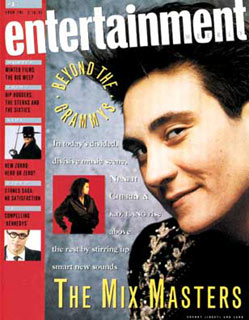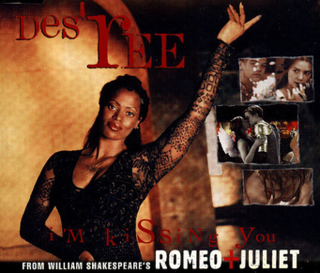
2000 AD is a weekly British science fiction-oriented comic magazine. As a comics anthology it serialises stories in each issue and was first published by IPC Magazines in 1977, the first issue dated 26 February. Since 2000 it has been published by Rebellion Developments.

New Musical Express (NME) is a British music, film, gaming, and culture website and brand. Founded as a newspaper in 1952, with the publication being referred to as a "rock inkie", the NME would become a magazine that ended up as a free publication, before becoming an online brand which includes its website and radio stations.

TV Guide is an American digital media company that provides television program listings information as well as entertainment and television-related news.

Reader's Digest is an American general-interest family magazine, published ten times a year. Formerly based in Chappaqua, New York, it is now headquartered in midtown Manhattan. The magazine was founded in 1922 by DeWitt Wallace and his wife Lila Bell Wallace. For many years, Reader's Digest was the best-selling consumer magazine in the United States; it lost that distinction in 2009 to Better Homes and Gardens. According to Media Mark Research (2006), Reader's Digest reached more readers with household incomes of over $100,000 than Fortune, The Wall Street Journal, Business Week, and Inc. combined.

Entertainment Weekly is an American digital-only entertainment magazine based in New York City, published by Dotdash Meredith, that covers film, television, music, Broadway theatre, books, and popular culture. The print magazine debuted on February 16, 1990, in New York City, and ceased publication in 2022.
Jackpot was a British comic book magazine that ran from the issues cover dated 5 May 1979 to issue 141, 30 January 1982, when it merged with Buster.

Empire is a British film magazine published monthly by Bauer Media Group. The first issue was published in May 1989.

Total Film was a British film magazine published 13 times a year by Future Publishing. The magazine was launched in 1997 and offers a cinema, DVD and Blu-ray news, reviews, and features. Total Film was available both in print and interactive iPad editions.

SFX is a British magazine covering the topics of science fiction and fantasy. Its name is a reference to the abbreviated form of "special effects".
Cashbox, also known as Cash Box, is an American music industry trade magazine, originally published weekly from July 1942 to November 1996. Ten years after its dissolution, it was revived and continues as Cashbox Magazine, an online magazine with weekly charts and occasional special print issues. In addition to the music industry, the magazine covered the amusement arcade industry, including jukebox machines and arcade games.

Top Gear is a British automobile magazine, owned by BBC Worldwide, and published under contract by Immediate Media Company. It is named after the BBC's Top Gear television show. It was first published in October 1993 and is published monthly at a price of £5.99. As of December 2022, there have been a total of 360 issues published in the UK. The major presenters of the rebooted television series — Jeremy Clarkson, Richard Hammond, and James May — were regular contributors, along with the series' production staff. "Tame racing driver" The Stig also regularly features in their car tests, though only communicates his thoughts and feelings through the articles of others. It is Britain's leading general interest car magazine in sales terms, with over 150,000 copies distributed each month in 2012, a drop of 50,000 from 2007. Previous columnists have included former Top Gear presenters Quentin Willson, Tiff Needell and Vicki Butler-Henderson.

"Who Wants to Live Forever" is a song by the British rock band Queen. A power ballad, it is the sixth track on the album A Kind of Magic, which was released in June 1986, and was written by lead guitarist Brian May for the soundtrack to the film Highlander. Queen was backed up by an orchestra, with orchestrations by film score composer Michael Kamen. The song peaked at No. 24 in the UK charts. In 1991, it was included in the band's second compilation album, Greatest Hits II.

"Tornerò" is a song by Romanian singer Mihai Trăistariu from his eighth studio album of the same name (2006). Released by CMC Entertainment on 3 July 2006, it was written by Cristian Hriscu, Mihaela Deac and its producer Eduard Cîrcotă. With English verses and a refrain in Italian, "Tornerò" is a disco, pop, dance and rave song featuring Trăistariu using his higher vocal range. The track won the Selecția Națională pre-selection show and represented Romania in the Eurovision Song Contest 2006, held in Athens, Greece. There, the singer was pre-qualified for the Grand Final, where he finished fourth with 172 points. On stage, three male and two female dancers from Romanian dance group Big Bounce accompanied Trăistariu, performing a mixture of ballet and contemporary dance.

Sound on Sound is a monthly music technology magazine. The magazine includes product tests of electronic musical performance and recording devices, and interviews with industry professionals. Due to its technical focus, it is predominantly aimed at the professional recording studio market as well as artist project studios and home recording enthusiasts.

Bravo is the largest teen magazine within the German-language sphere. The first issue was published in 1956.

"Kissing You" is a song by British singer Des'ree. It was written by the singer with Timothy Atack for Baz Luhrmann's 1996 film Romeo + Juliet. The song was included on the film's soundtrack album and Des'ree's third studio album, Supernatural (1998). A pop ballad set in the key of A minor, the record uses a simple instrumentation consisting only of piano and string instruments. "Kissing You" featured in Romeo + Juliet when the title characters meet at a ball. The song was well received by critics for its emotional melody and toned-down production. First released as a single in Australia on 24 February 1997, it appeared on the ARIA Singles Chart and the UK Singles Chart. A music video accompanied the single, which included scenes from Romeo + Juliet. This song is also used in Season 2, Episode 2 of ‘’The Summer I Turned Pretty’’.

Multiple record charts have been inaugurated in Romania since the 1990s. The Romanian Top 100 was the country's national chart until 2012. Founded in 1995, it was a ranking based on the compilation of charts submitted by local Romanian radio stations. The Romanian Top 100 was published weekly and was also announced during a radio show starting in 1998. Compilation of the list was first handled by Body M Production A-V, followed by Media Forest. In the 2010s, the chart was announced during a podcast on Kiss FM, but the broadcast ended in February 2012.

Shonen Jump, officially stylized SHONEN JUMP and abbreviated SJ, was a shōnen manga anthology published in North America by Viz Media. It debuted in November 2002 with the first issue having a January 2003 cover date. Based on Shueisha's popular Japanese magazine Weekly Shōnen Jump, Shonen Jump was retooled for English readers and the American audience, including changing it from a weekly publication to a monthly one. It featured serialized chapters from different manga series and articles on Japanese language and culture, as well as manga, anime, video games, and figurines. The premiere issue of Shonen Jump also introduced the first official English translations of One Piece, Sand Land, Yu-Gi-Oh!, YuYu Hakusho, and Naruto.

Weekly Shonen Jump was a digital shōnen manga anthology published in North America by Viz Media, and the successor to their monthly print anthology Shonen Jump. It began serialization on January 30, 2012, as Weekly Shonen Jump Alpha, with two free preview issues published in the buildup to its launch. Based on Shueisha's popular Japanese magazine of the same name, Weekly Shonen Jump was an attempt to provide English-speaking readers with easily accessible, affordable, and officially licensed editions of the latest installments of popular Shōnen Jump manga soon after their publication in Japan, as an alternative to popular bootleg scanlation services which were illegal and often poorly translated. It attempts to copy the Japanese magazine.

















